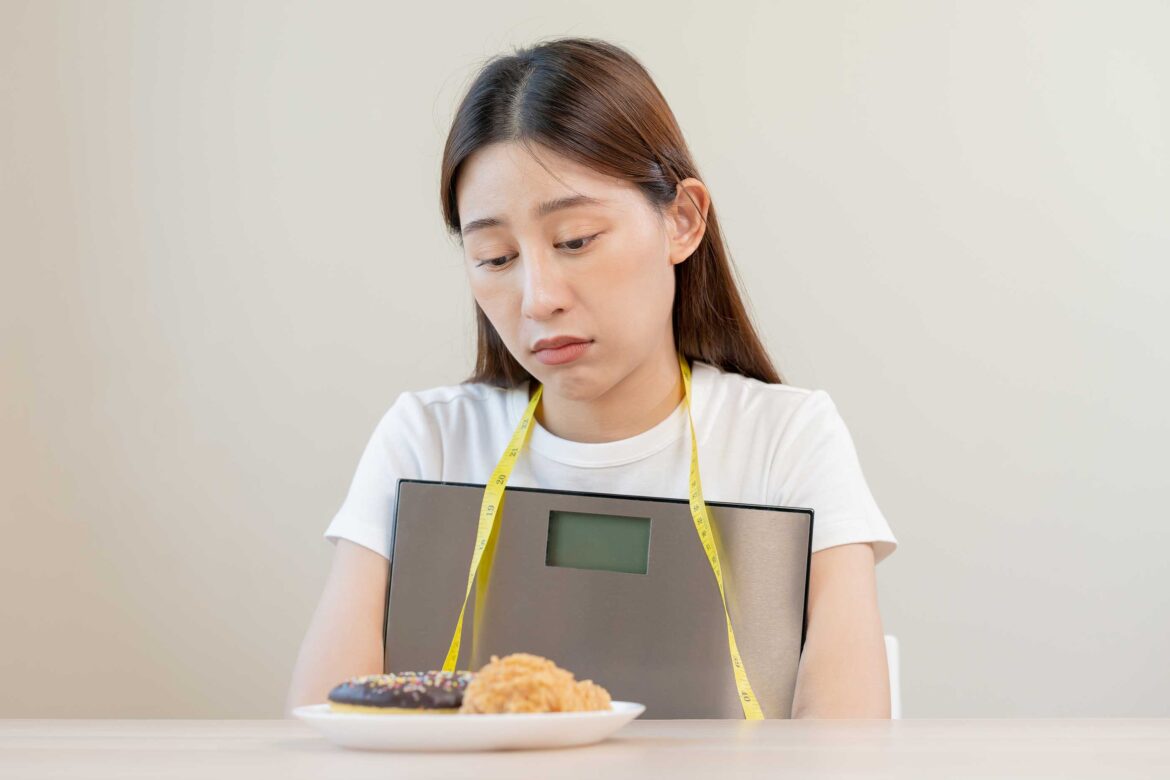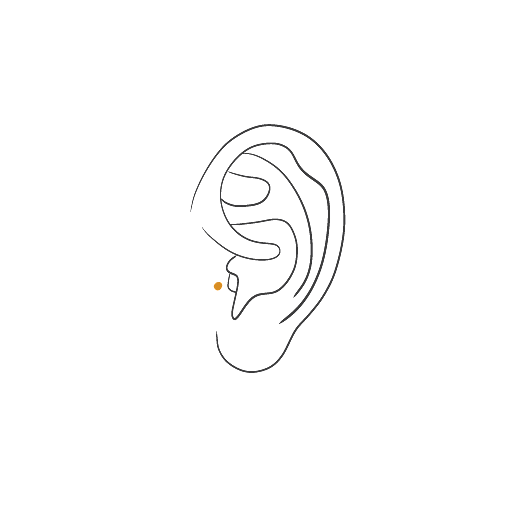If you are struggling with weight management and looking for alternative treatments to lose weight, TCM can be an alternative treatment that you can consider. From TCM perspective, excess fats or weight gain is often due to the “Dampness” and “Phlegm” accumulated in the body. Dampness and Phlegm occurs when there is an imbalance within the body, especially in the process of food digestion and body fluid transportation. So how can TCM help with losing weight fast and healthily? TCM can help with weight management by restoring the body’s natural balance to improve metabolism and eliminate Dampness and Phlegm. With targeted treatment plans based on each person’s unique body constitution, patients can lose weight healthily with TCM.
Weight gain generally results from a combination of causes:
1. Overeating
The recommended daily calories intakes to maintain a healthy physically active men and women are 2200 and 1800 respectively. Therefore, when you consume more calories than what you need, the excess calories will be stored in the body as fat leading to weight gain. [1]
2. Diet
Diets that are high in saturated fat, sugar and low consumption of vegetables and fruits would increase the risk of becoming overweight or obese.
3. Lack of physical activity
Having a sedentary lifestyle can result in taking in more calories than you burn through exercise and daily activities. In our tech-savvy generation, many people spend long hours in front of screens, whether it’s for work or leisure. Studies have shown that the number of hours present in front of a screen is highly associated with weight gain. [2],[3]
4. Short sleep duration and poor-quality of sleep
Research has shown an association between short sleep duration or poor sleep quality and weight gain. Individuals who sleep less than 7 hours daily have a higher chance of gaining weight and developing obesity. This is because sleep deprivation could increase calories intake by altering the hormones that control hunger which leads to increased hunger. [4] It also provides more time for people to snack more, especially at night when they are awake.[5]
5. Post-partum
Weight gain during pregnancy is a natural process as a woman’s body goes through various changes to support the growing baby, such as increased blood supply, breast and fat tissue, and uterus growth. Additionally, women may need to consume more calories to ensure that the baby is receiving adequate nutrients. However, excessive caloric intake can lead to significant weight gain, which can make it challenging for women to shed those extra pounds postpartum, especially if they have a sedentary lifestyle or lack consistent exercise.
6. Menopause
During menopause, the production of estrogen will be lowered and result in hormonal imbalance. Estrogen inhibits the action of hunger signals and prevents excessive calories consumption. Hence, for menopausal women they will experience more intense hunger signals, encouraging increased food intake which promotes weight gain.[6]
7. Decreased metabolic rate
Metabolism refers to a series of chemical reactions in an organism that create and break down energy required for life. When the organism is at rest, the amount of energy needed to keep the body function is known as the basal metabolic rate (BMR). Studies have shown the BMR begins to decrease at around 60 years old, this means lesser calories will be burned over time. Hence, when one takes in more calories than are burned through daily activities, the excess calories will lead to weight gain. [7]
How does TCM view weight gain?

In TCM, the body constitution depends on the intrinsic characteristics of the body and can be influenced by the environment. An individual’s body constitution may develop and evolve to adapt to the environmental changes during their lifetime. According to TCM, there are a few body constitutions listed below that are commonly associated with weight gain, overweight and obesity. They are Phlegm-Dampness, Dampness-Heat, Qi-stagnation, Qi-deficiency and Yang-deficiency. [8]
| Type of body constitution | Causes | Symptoms |
| Phlegm-Dampness [9] |
|
|
| Dampness-Heat [10] |
|
|
| Qi-stagnation [11] |
|
|
| Qi-deficiency [12] |
|
|
| Yang-deficiency [12] |
|
|
The World Health Organisation (WHO) defined adults who have BMI equal to or greater than 25 as overweight and those who have BMI equal to or greater than 30 as obese.[13] Being overweight and obese may affect almost every aspect of health, from reproductive function to memory and mood. Here are some of the associated health risks of being overweight and obese: [14]
- Type 2 diabetes
- Hypertension
- Coronary Artery Disease (CAD)
- Cancer
- Reproduction health
- Joint problem such as osteoarthritis
- Psychological effects such as depression, alzheimer’s disease
Best way to lose weight according to Physician Lim
TCM plays a unique role in the treatment of obesity. It can help to lose weight naturally without side effects by speeding up the body’s metabolism and removing the Dampness accumulated in the body. Here are some of the best ways to lose weight fast and healthily with the help of TCM:
1. Herbal Medications
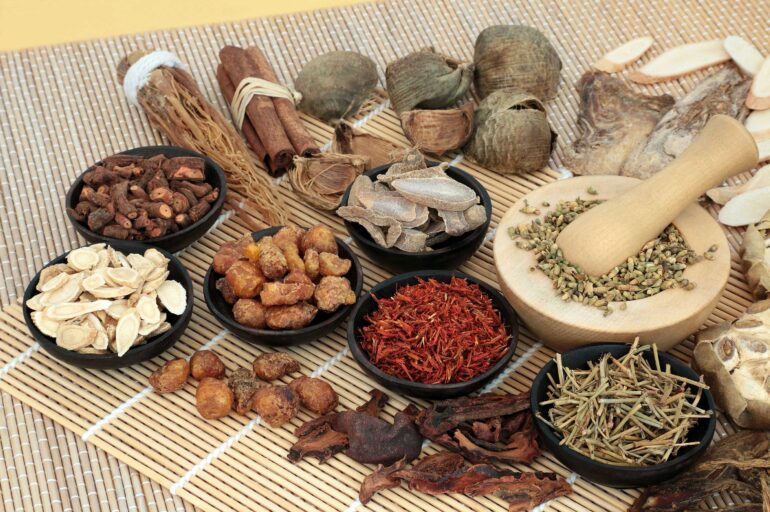
Customized concoctions of various TCM herbs can be tailored to an individual’s body constitution and condition to aid in weight loss by suppressing appetite, boosting metabolism, and promoting fat burning. Examples of these herbs include Fu Ling (茯苓), Huang Qi (黄芪), Chinese Yam (山药) and He Ye (荷叶).
2. Acupuncture

Research has shown that acupuncture can be highly effective in helping with weight management [15] in various ways. First, it will strengthen the Spleen’s function which promotes healthy digestion. Second, it will improve mood by increasing the release of neurotransmitters. Third, it will suppress appetite which reduces the number of calories that we take in. Lastly, acupuncture has the function of reducing fat tissues selectively by stimulating the metabolism. [16] The points that are frequently used to administer acupuncture for weight loss are Tian Shu (天枢), Qi Hai (气海) CV6, Zu San Li (足三里) ST36, Feng Long (丰隆) ST40, San Yin Jiao (三阴交) SP6. These points help to strengthen the Spleen and Stomach which improve the body’s metabolism and aid in removing the Dampness and Phlegm that causes weight gain.
3. Cupping

Cupping is a traditional Chinese medicinal intervention that uses small, heated glass cups to create a vacuum on the skin. It can help with weight loss by improving blood and Qi circulation and removing Dampness stagnation in the body. It also can loosen visceral body fats gradually so that they can be broken down easily.
4. Electro-Lymphatic Therapy (ELT)
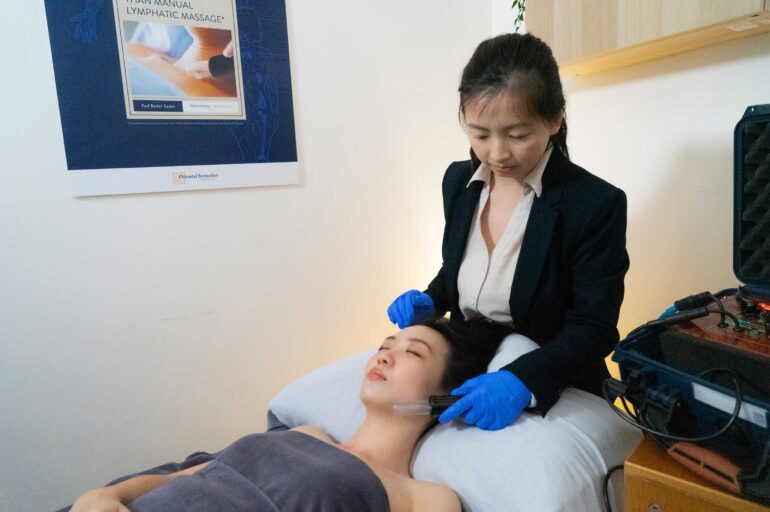
ELT is a gentle and non-invasive therapy that stimulates proper flow and drainage of the lymphatic system, simulating the effects of lymphatic drainage massage of tuina without the pressure and pain. ELT can help to clear toxins out of the body, maintaining the balance of our body fluids by removing the excess, improving blood circulation and help speed up metabolism that will aid in weight loss.
Daily maintenance tips to help with weight management or prevent weight gain:
1. Acupressure Massage:
Studies have shown that acupuncture can help with weight loss by suppressing appetite. We can achieve a similar effect with acupressure massage that can be done at home without the use of needles! Here are some acupoints that you can try massaging at home [17]:
| i. Hunger Point
|
Location: Located in the middle of the tragus
Function: Help to control appetite by suppressing hunger feeling and reducing the muscle tension of gastrointestinal tract when the body is at rest Direction: Press this point with your index finger for 1-2 mins daily. |
| ii. Zu san li (ST36)
|
Location: 4 fingers below the kneecap at the outer part of the lower limbs.
Function: Improve digestion by influencing the parasympathetic nervous system and the upper abdomen organs such as the stomach. Direction: Press this point with your thumb, and gently massage the point using a circular motion for 2-3 mins daily. |
| iii. San Yi Jiao (SP 6)
|
Location: On the inner side of the lower leg, 4 fingers above the ankle.
Function: Improve digestion and gastrointestinal conditions by influencing the parasympathetic nervous system and lower abdomen. Direction: Press the point with your thumb, and gently massage the point using a circulation motion for 2 mins daily. |
2. Supplements

Studies have shown an association between dysbiosis of gut microflora and obesity. Many gut micro-organisms induce the risk and development of obesity by increasing energy absorption, increasing appetite, enhancing fat storage, regulating circadian rhythms, and causing chronic inflammation.[18]
Having a healthy gut is crucial for not just our digestive health, but also our mental health and immune health. Gut Essentials is a symbiotic blend of 4 Probiotic strains and 3 types of Prebiotics to restore our intestinal microbiome balance.
ii. Sleep Essentials
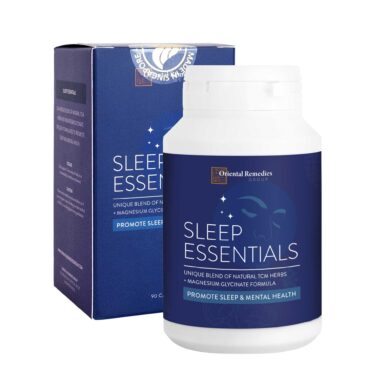
As mentioned earlier, short duration of sleep, poor quality of sleep and chronic stress are linked to weight gain and obesity. Therefore, it is important to have enough hours of good quality sleep. Sleep Essentials by Oriental Remedies store is a TCM supplement specially formulated for better sleep and stress relief.
It contains TCM herbs and the latest sleep-aid ingredients to improve sleep and mood:
– Semen Ziziphi Spinosae (Suan Zao Ren) helps to improve sleep by calming the Heart and nourishing the Liver to balance the body’s Yin and Yang.
– Magnesium glycinate and Vitamin B complex works synergistically to reduce stress and promote better sleep.
– 5-hydroxytryptophan (5-HTP) can be converted to Serotonin (a happy brain chemical) and Melatonin (a sleep-inducing chemical) to improve sleep quality and boost mood.
3. Lifestyle tips
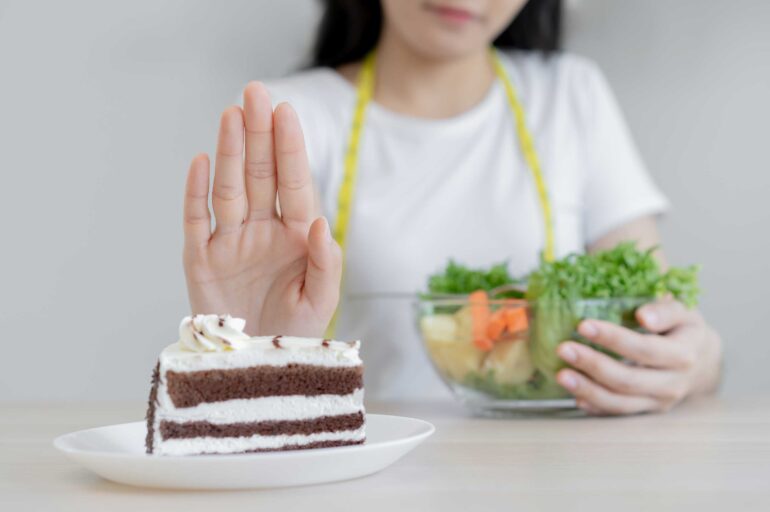
i. Balance your calorie intake
Caloric balance is the key to managing the weight as consuming more calories than what the body uses, the extra calories will be stored as fat, resulting in weight gain. Having smaller serving sizes can help to lower the calories intake to prevent overeating and no food intake after 11pm as the body’s metabolism starts to slow down. Also, caloric intake can be reduced with lesser consumption of high-fat and sugar food.
ii. Eat more fruits and vegetables
Fruits and vegetables are high in nutrients and fiber and low in calories naturally. Studies have shown eating non-starchy vegetables and fruits such as green leafy vegetables, apples, etc. may promote weight loss. [19]
iii. Consume protein-rich foods
Remember to include protein-rich foods for each meal. Research suggests that a high protein diet may help to stave off hunger for a longer period and increase the body’s metabolic rate that helps with weight management. Examples of protein-rich foods are lean poultry/meat, fish, egg, low-fat dairy products such as low-fat yogurt, etc. [20]
4. Choose whole grain food
Whole grain foods are higher in fiber and digested at a slower rate as compared to refined grains. Hence, they will prolong the feeling of “fullness” which may facilitate weight management.
5. Regular exercise
Physical activity is important for effective weight management, as it burns calories that are consumed daily. To prevent weight gain, an individual should exercise at least 150-300 minutes of moderate-intensity aerobic activities weekly while maintaining a balanced and healthy diet. [21] Examples of moderate-intensity aerobic activity are brisk walking, cycling and recreational badminton. Besides that exercise can help to relieve stress as exercise releases endorphins, a neurotransmitter which helps to improve an individual’s mood and reduces negative emotions such as depression and anger.
6. Sufficient sleep
Sleep duration can vary between different individuals due to age, genetic factors and other reasons. Studies have shown that habitual short sleep duration is associated with obesity [22] and the recommended sleep duration for adults is to sleep for 7-9 hours daily. [23] In addition, it is advised to fall asleep between 10pm and 12am midnight which is the time that circadian rhythm occurs as research showed that individuals who sleep between 10pm and 10:59 pm had a lower risk of CVD than those who slept earlier or later. For those who slept after midnight had an increased risk of CVD as when we sleep out of the circadian rhythm, there will be increased inflammation, dysfunction of glucose regulation and insulin resistance and this may result in weight gain and obesity. [24]
Your healing is the most important!
Weight gain and obesity are a worrying global trend, and many individuals are struggling with weight loss and weight management. At Oriental Remedies Group, most of our physicians are trained in both Biomedical Science and TCM at Nanyang Technological University (Singapore) and China for a minimum of 5-8 years before being certified to practice in Singapore. If you or your loved one is looking for a holistic way to manage weight, consult our physicians at +65 8087 0486 for a targeted treatment plan.
—–
This article is written by Physician Eileen Lim (Oriental Remedies Group, Singapore), a registered TCM physician certified by the Traditional Chinese Medicine Practitioners Board (TCMPB).
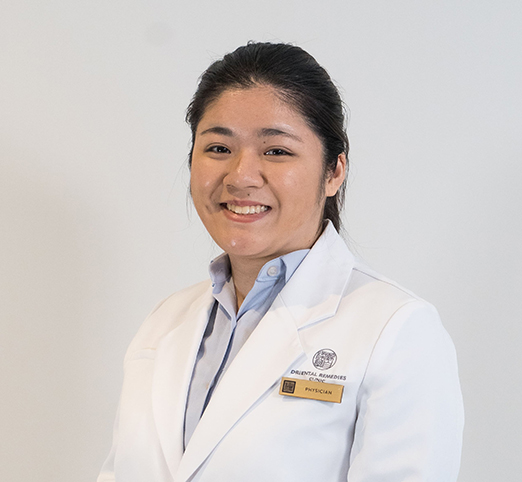
Disclaimer:
The information on this page is for information and educational purposes only. Such medical information may relate to disease, injury, drugs and other treatments, medical devices and/or health products. Medical information does not amount to advice, and if advice is needed an appropriate professional help should be sought. The disclaimer asserts that no warranties or representations are given in respect of the medical information, and that the website operator should not be held liable if a user suffers any injury or loss after relying upon the medical information.
Electro-Lymphatic Therapy using Lymph-Drainage XP-II is intended for use only for general well-being purposes or to encourage or maintain a healthy lifestyle, and it is not intended to be used for any medical purposes (such as detection, diagnosis, monitoring, management or treatment of any medical condition or disease). Please consult a physician for any medical advice required.
References:
[1]: HealthHub Singapore. (n.d.). TIPS for successful weight management. HealthHub. Retrieved April 20, 2023, from https://www.healthhub.sg/live-healthy/408/Healthy%20Weight%20Loss
[2]: Haghjoo, P., Siri, G., Soleimani, E. et al. Screen time increases overweight and obesity risk among adolescents: a systematic review and dose-response meta-analysis. BMC Prim. Care 23, 161 (2022). https://doi.org/10.1186/s12875-022-01761-4
[3]: Robinson TN, Banda JA, Hale L, Lu AS, Fleming-Milici F, Calvert SL, Wartella E. Screen Media Exposure and Obesity in Children and Adolescents. Pediatrics. 2017 Nov;140(Suppl 2):S97-S101. doi: 10.1542/peds.2016-1758K. PMID: 29093041; PMCID: PMC5769928.
[4]: Taheri S, Lin L, Austin D, Young T, Mignot E. Short sleep duration is associated with reduced leptin, elevated ghrelin, and increased body mass index. PLoS Med. 2004 Dec;1(3):e62. doi: 10.1371/journal.pmed.0010062. Epub 2004 Dec 7. PMID: 15602591; PMCID: PMC535701.
[5]: Nedeltcheva AV, Kilkus JM, Imperial J, Kasza K, Schoeller DA, Penev PD. Sleep curtailment is accompanied by increased intake of calories from snacks. Am J Clin Nutr. 2009 Jan;89(1):126-33. doi: 10.3945/ajcn.2008.26574. Epub 2008 Dec 3. PMID: 19056602; PMCID: PMC2615460.
[6]: Kozakowski J, Gietka-Czernel M, Leszczyńska D, Majos A. Obesity in menopause – our negligence or an unfortunate inevitability? Prz Menopauzalny. 2017 Jun;16(2):61-65. doi: 10.5114/pm.2017.68594. Epub 2017 Jun 30. PMID: 28721132; PMCID: PMC5509974.
[7]: Fatima Cody Stanford, M. D., & Chika Anekwe, M. D. (2021, October 8). Surprising findings about metabolism and age. Harvard Health. Retrieved April 10, 2023, from https://www.health.harvard.edu/blog/surprising-findings-about-metabolism-and-age-202110082613
[8]: Li M, Mo S, Lv Y, Tang Z, Dong J. A Study of Traditional Chinese Medicine Body Constitution Associated with Overweight, Obesity, and Underweight. Evid Based Complement Alternat Med. 2017;2017:7361896. doi: 10.1155/2017/7361896. Epub 2017 Oct 19. PMID: 29234426; PMCID: PMC5671717.
[9]: Wang J., Wang Q., Li L., et al. Phlegm-dampness constitution: genomics, susceptibility, adjustment and treatment with traditional Chinese medicine. The American Journal of Chinese Medicine. 2013;41(2):253–262. doi: 10.1142/s0192415x13500183.
[10]: Haihong Zhao, Yuhan Zong, Wenle Li, Yaqi Wang, Weibo Zhao, Xianghe Meng, Fan Yang, Jingwei Kong, Xiaoshan Zhao, Ji Wang,Damp-heat constitution influences gut microbiota and urine metabolism of Chinese infants, Heliyon,Volume 9, Issue 2, 2023, e12424, ISSN 2405-8440, https://doi.org/10.1016/j.heliyon.2022.e12424
[11]: Cheng JF, Huang XY, Liu TL, Wang RY, Ching HY. The Relationship between Body Weight Change and Body Constitutions of Traditional Chinese Medicine in Patients with Schizophrenia. Evid Based Complement Alternat Med. 2016;2016:9585968. doi: 10.1155/2016/9585968. Epub 2016 Oct 13. PMID: 27818703; PMCID: PMC5081436.
[12]: Zhu Yanbo, Wang Qi, Wu Chengyu, Pang Guoming, Zhao Jianxiong, Shen Shilin, … & Yan Xue. (2010). Logistic regression analysis of the relationship between TCM constitution types and overweight and obesity in 18805 Chinese adults. Journal of Integrative Medicine, 8 (11), 1023-1028.
[13]: Obesity and overweight. (2021, June 9). Retrieved April 10, 2023, from https://www.who.int/news-room/fact-sheets/detail/obesity-and-overweight
[14]: Overview of obesity. (2019, November 19). Retrieved April 10, 2023, from https://www.hopkinsmedicine.org/health/conditions-and-diseases/obesity/overview-of-obesity
[15]: Zhong YM, Luo XC, Chen Y, Lai DL, Lu WT, Shang YN, Zhang LL, Zhou HY. Acupuncture versus sham acupuncture for simple obesity: a systematic review and meta-analysis. Postgrad Med J. 2020 Apr;96(1134):221-227. doi: 10.1136/postgradmedj-2019-137221. Epub 2020 Feb 3. PMID: 32015189; PMCID: PMC7146934.
[16]: Ismail LA, Ibrahim AA, Abdel-Latif GA, El-Haleem DA, Helmy G, Labib LM, El-Masry MK. Effect of Acupuncture on Body Weight Reduction and Inflammatory Mediators in Egyptian Obese Patients. Open Access Maced J Med Sci. 2015 Mar 15;3(1):85-90. doi: 10.3889/oamjms.2015.010. Epub 2015 Jan 14. PMID: 27275202; PMCID: PMC4877795.
[17]: Lu PH, Chen YY, Tsai FM, Liao YL, Huang HF, Yu WH, Kuo CY. Combined Acupoints for the Treatment of Patients with Obesity: An Association Rule Analysis. Evid Based Complement Alternat Med. 2022 Mar 17;2022:7252213. doi: 10.1155/2022/7252213. PMID: 35341146; PMCID: PMC8947926.
[18]: Liu BN, Liu XT, Liang ZH, Wang JH. Gut microbiota in obesity. World J Gastroenterol. 2021 Jul 7;27(25):3837-3850. doi: 10.3748/wjg.v27.i25.3837. PMID: 34321848; PMCID: PMC8291023.
[19]: Bertoia ML, Mukamal KJ, Cahill LE, Hou T, Ludwig DS, Mozaffarian D, Willett WC, Hu FB, Rimm EB. Changes in intake of fruits and vegetables and weight change in United States men and women followed for up to 24 years: analysis from three prospective cohort studies. PLoS medicine. 2015 Sep 22;12(9):e1001878.
[20]: Moon J, Koh G. Clinical Evidence and Mechanisms of High-Protein Diet-Induced Weight Loss. J Obes Metab Syndr. 2020 Sep 30;29(3):166-173. doi: 10.7570/jomes20028. PMID: 32699189; PMCID: PMC7539343.
[21]: JAKICIC, J. M., K. E. POWELL, W. W. CAMPBELL, L. DIPIETRO, R. R. PATE, L. S. PESCATELLO, K. A. COLLINS, B. BLOODGOOD, and K. L. PIERCY. (2019). Physical Activity and the Prevention of Weight Gain in Adults: A Systematic Review. MEDICINE &SCIENCE IN SPORTS &EXERCISE, 1262-1269. Retrieved June 2021 from doi:10.1249/MSS.0000000000001938
[22]: Wu Y, Zhai L, Zhang D. Sleep duration and obesity among adults: a meta-analysis of prospective studies. Sleep Med. 2014;15(12):1456–1462.
[23]: Chaput JP, Dutil C, Sampasa-Kanyinga H. Sleeping hours: what is the ideal number and how does age impact this? Nat Sci Sleep. 2018 Nov 27;10:421-430. doi: 10.2147/NSS.S163071. PMID: 30568521; PMCID: PMC6267703.
[24]: Knutson KL, von Schantz M. Associations between chronotype, morbidity and mortality in the UK Biobank cohort. Chronobiol Int. 2018 Aug;35(8):1045-1053. doi: 10.1080/07420528.2018.1454458. Epub 2018 Apr 11. PMID: 29642757; PMCID: PMC6119081.

